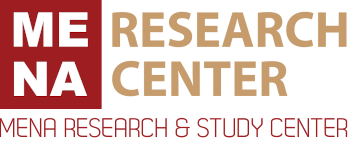Scenes are repeatedly observed in Türkiye in which AKP officials reproach young people for their gadgets during protests about the miserable economic situation in the country. The supporters of the Erdogan government want to say: You can’t be that bad if you own iPhones.
Thousands of videos are also shared on social media in which families are interviewed about their voting behavior. Married couples, the woman with a headscarf, stand there and swear eternal loyalty. Not for their love, but for the president and his party. Then the young daughters who also wear a headscarf are questioned. They then often reply: “Well, it’s obvious that I won’t vote for Erdogan.” The mothers then: “That’s just Generation Z.”
The fact that the Turkish opposition has a realistic chance of winning the presidential elections on May 14 against the AKP, which has been in power for more than 20 years, is also due to the young Turks. Because they have managed to process an earlier political trauma.
Türkiye’s historical wounds, which are making themselves felt as deep scars in its political culture, are slowly being healed. The political inferiority complex that Türkiye is insignificant for the West no longer applies to them. Türkiye is now a popular tourist destination, from Antalya to Cappadocia to Van. On Instagram, young people follow how an internationally known model and influencer has herself photographed in front of the Turkish embassy in New York with donations for the earthquake victims. They like photos in which Turkish influencers are welcome guests at the fashion weeks in Milan or Paris , their series actors are adored by women and men all over the world.
Today, more than ever, the Turkish youth wants to be part of the West. But not just with Starbucks coffee and the latest iPhone, but with freedom, the rule of law and human rights. They are now self-confident enough to reconcile the lines of conflict in Türkiye. Because they haven’t made friends along ethnic or ideological lines for a long time.
Six opposition parties have formed an alliance and nominated a common candidate. The opposition leader of the secular CHP, Kemal Kilicdaroglu, is running against Erdogan. The pro-Kurdish HDP and the Workers’ Party will also support him, although right-wing conservative parties are present in the alliance alongside the left-wing CHP. This is a historic moment in Türkiye, the country has changed. Different groups have stopped fighting for freedom and political self-determination only on their own front, because they know that the fight for democracy can only be won together. And for that they need a reconciliation.
If people in Türkiye are willing today to make peace between the different groups in society, then that is also the logical consequence of what began exactly ten years ago with the Gezi Park protests. What started as a small protest by artists and environmentalists in Istanbul, who objected to the construction of a new shopping center in Taksim Square’s Gezi Park, grew into the largest wave of protests across the country against the AKP government.
But it was an anti-movement of various groups that had opposed Erdogan without clear and, above all, without common goals. Today, however, the political opposition has been able to formulate concrete political goals instead of simply pursuing AKP bashing and stoking fears of Islamization. These are goals that people of all political persuasions can identify with: democracy, freedom and the rule of law. Because in the last few years of an authoritarian regime, they have felt that only a liberal, free democracy can guarantee the diversity of political and ideological movements in Türkiye.
Turkish President Erdogan still has loyal supporters who see him as a strong man who leads the country through crises and improves Türkiye’s international reputation. However, the earthquake in ten provinces of Türkiye has changed the way many of its conservative voters in Anatolia see the government and Turkish society.
Even if Erdogan were to win the elections again, society has changed significantly over the past ten years. A democratic Türkiye is only sustainable if social peace is possible between the traditional lines of conflict, between eastern and western Türkiye, between Turkish and Kurdish identities, between Alevi-Sunni denominations, between secular and Islamic worldviews.
Atatürk, the founder of the state, tried to cover up these lines of conflict overnight with a nation state and a clear, pro-European and strictly secular identity. But he wasn’t able to convince the whole country with it, since Turkish democracy has stood on shaky ground.
It’s different today. Türkiye is witnessing the dawn of a new democratic era with a shared vision of the country that desires unity in its diversity, internal peace and democracy.
Türkiye has been at this point before: when Erdogan came to power in 2002 to democratize and liberalize the country. Not only right-wing conservatives voted for him, but also leftists and Kurds. They had placed hope in Erdogan and his political goals for a secure and democratic Türkiye. Today, however, the Turks have learned something new: there is no strong leader who can guarantee their democratic future. The Turkish people have grown up. The Turkish youth calls out to the older generation: A democratic and peaceful Türkiye? We can do it ourselves.
All publishing rights and copyrights reserved to MENA Research and Study Center.



























